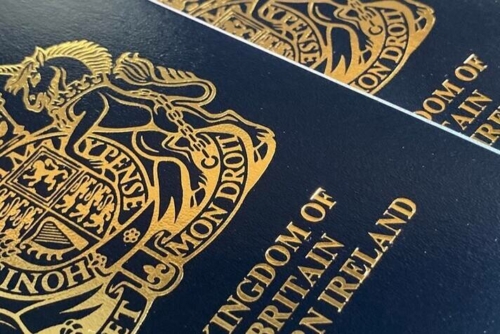Expect delays as Border Force staff at passport control join Christmas strikes
Links on Head for Points may support the site by paying a commission. See here for all partner links.
The Public and Commercial Services Union, the largest trade union representing civil servants, has confirmed that Border Force staff will strike over Christmas.
The strike affects PCS members employed by the Home Office dealing with passport control.
It is not clear what percentage of Border Force are PCS members or what percentage will choose to lose up to eight days of pay by striking.

The strike action will take place on eight days over Christmas, on 23rd, 24th, 25th, 26th, 28th, 29th, 30th and 31st December. Heathrow, Gatwick, Manchester, Birmingham, Cardiff and Glasgow airports are all affected. The Port of Newhaven will also be affected.
It is not clear what happens at other airports. It is possible that PCS does not have any active members elsewhere.
PCS general secretary Mark Serwotka said:
“The government can stop these strikes tomorrow if it puts money on the table.
“Like so many workers, our members are struggling with the cost-of-living crisis. They are desperate. They are being told there is no money for them, while they watch ministers giving out government contracts worth billions of pounds to their mates.
“Some sections of the media have accused us of playing politics with these strikes. Let me be clear: our dispute is with the employer.
“We will fight to improve our members’ pay, terms and conditions regardless of who is in Downing Street.”
PCS hasn’t provided information on how many Border Force staff it represents, the turnout from the ballot or indeed the percentage that voted in favour of a strike.
What impact will this have?
It is not clear, yet, how much of an impact this strike action will have.
No passport checks are required to leave the UK so departing passengers should not be impacted.
Clearly, eight days of strikes during some of the busiest travel periods are far from ideal. Border Force struggles to cope during periods of disruption at the best of times, so reducing the number of staff at immigration will inevitably lead to longer wait times and queues.
The strike is likely to disproportionately affect families with children under 12 and those travelling on passports that cannot be used at eGates, as these people must all be manually checked upon entry.
The government has been preparing mitigation plans for weeks. The Home Office recently confirmed to The Independent that it would look to bring in “third parties”, including the army, to take on some of the work.
That might ease some of problems but it will not eliminate disruption entirely. Any third parties are likely to be less clued-up and efficient when it comes to the day-to-day operations of dealing with thousands of arriving passengers.
In a worst-case scenario, airports may have to force airlines to cancel flights in order to prevent overcrowding inside terminal buildings. This is uncharted territory and it remains to be seen what the impact will be.
Update 8th December:
The Times (paywall) is now reporting that airlines are being told to scrap 30% of flights over the affected days as more than 1,000 staff go on strike.
Phil Douglas, director general of Border Force, told airlines:
“Our contingency workforce will not be able to operate with the same efficiency as our permanent workforce. As is the case with any industrial action, we simply will not know levels of permanent Border Force officers who will report for duty until the day and what the operational impacts might be.”



 Rob
Rob 





Comments (17)